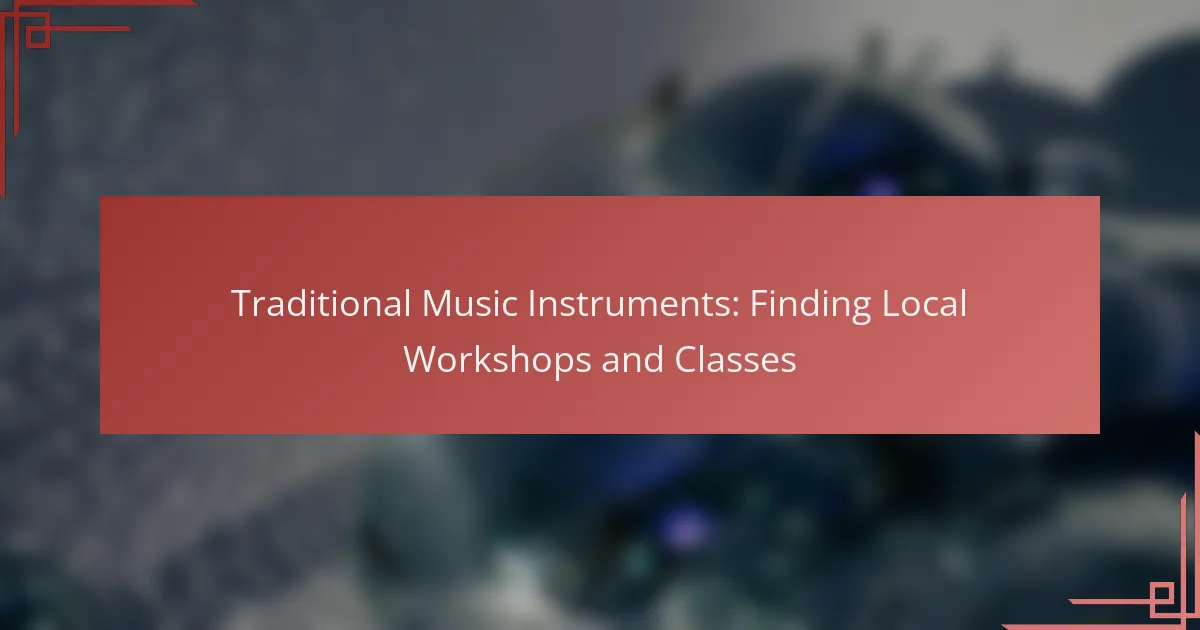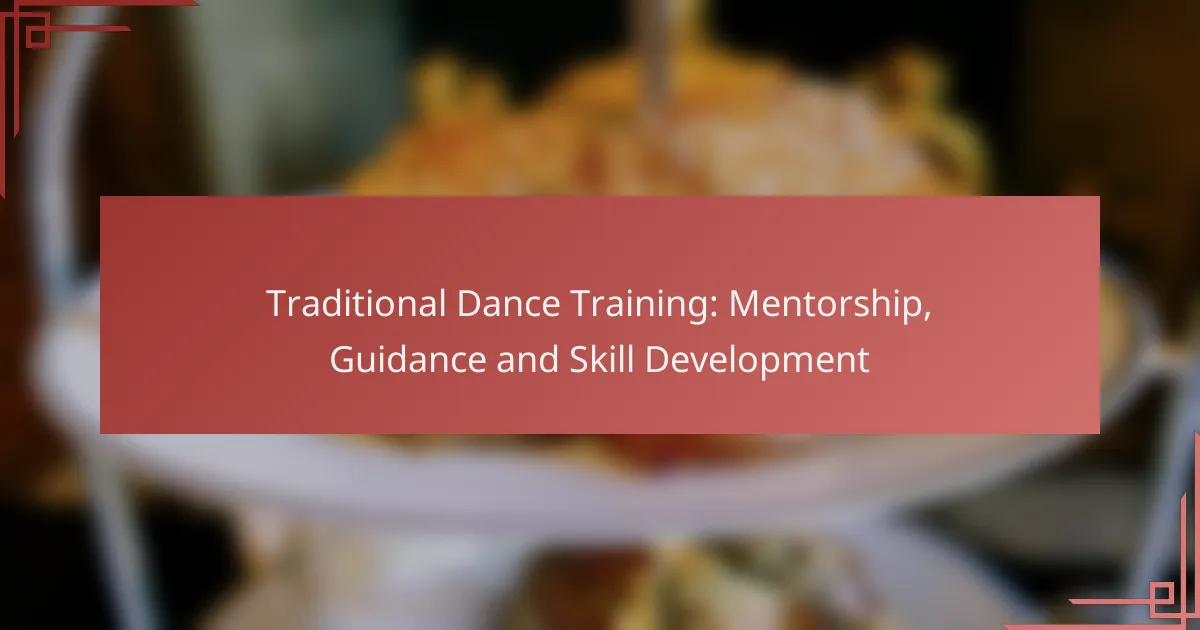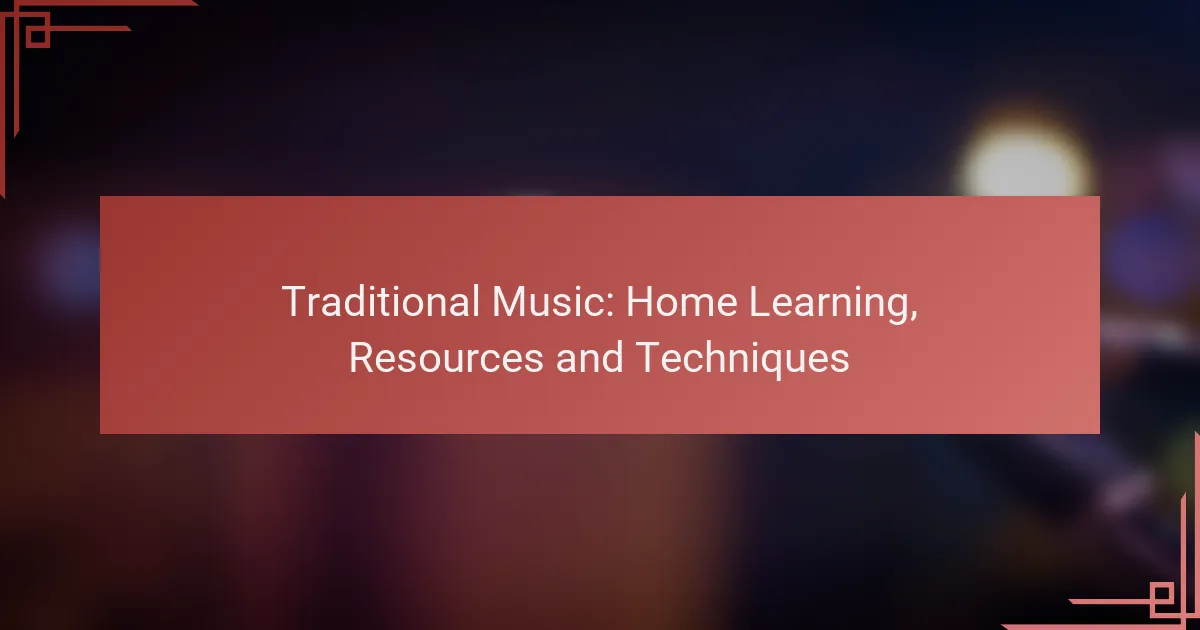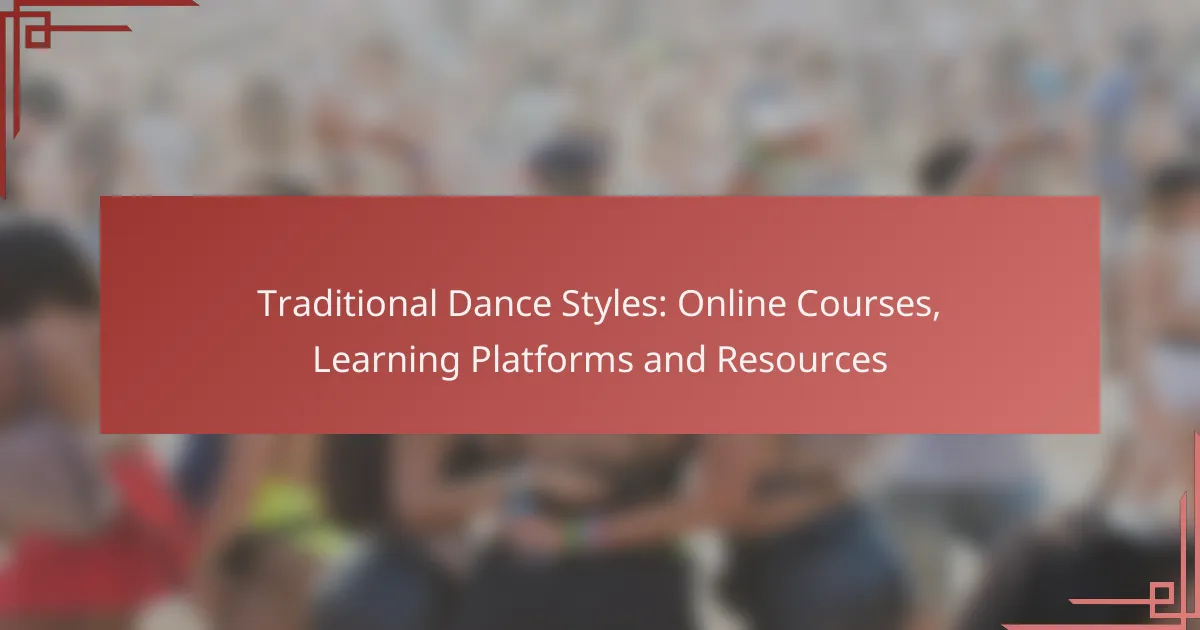If you’re interested in exploring traditional music instruments, local workshops and classes offer a fantastic opportunity to enhance your skills. These sessions cater to various skill levels and often include hands-on experience, lessons on instrument history, and techniques. By selecting the right workshop that aligns with your learning style and goals, you can immerse yourself in a vibrant musical community.
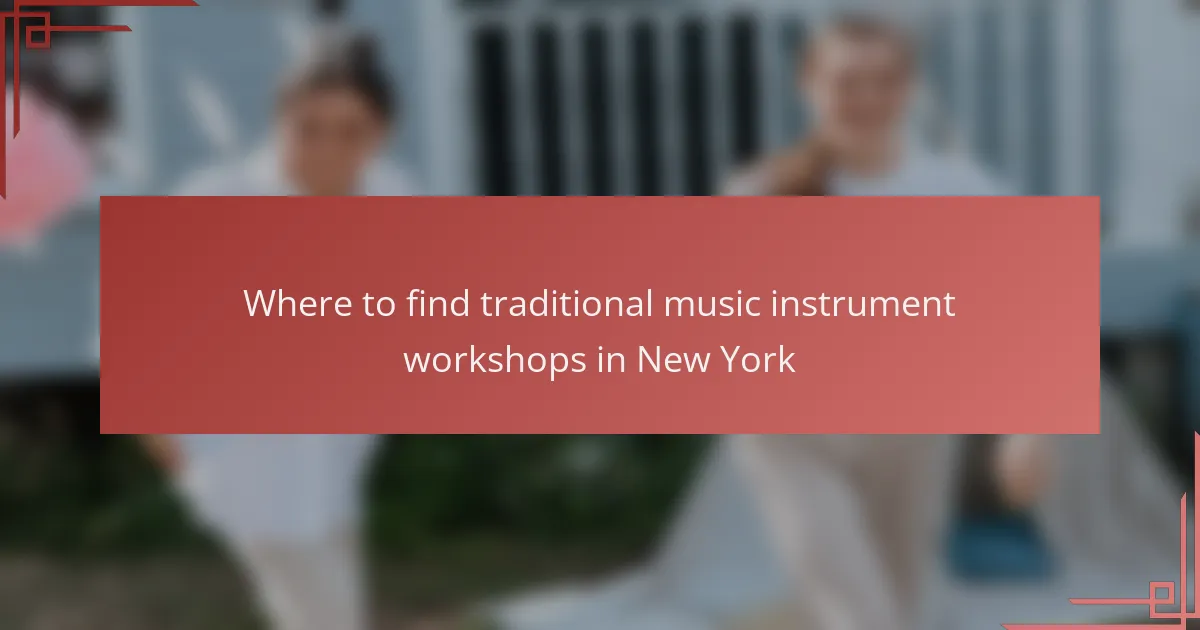
Where to find traditional music instrument workshops in New York
New York offers a variety of workshops for traditional music instruments, catering to different skill levels and interests. These workshops provide hands-on experience and often include lessons on instrument history and technique.
Community Music Center
The Community Music Center in Manhattan is a hub for music enthusiasts looking to learn traditional instruments. They offer classes in instruments like the violin, flute, and guitar, with a focus on both individual and group lessons.
Workshops are typically held on weekends, making them accessible for those with busy schedules. Prices vary, but expect to pay around $30 to $50 per session, depending on the instructor and class size.
Brooklyn Conservatory of Music
The Brooklyn Conservatory of Music provides a rich selection of workshops for traditional instruments, including the piano, drums, and various string instruments. Their programs are designed for all ages, from children to adults.
Classes are often structured around specific genres, such as folk or classical music, allowing students to explore their interests deeply. Tuition ranges from $40 to $70 per class, with discounts available for longer-term commitments.
NYC Guitar School
NYC Guitar School specializes in guitar instruction but also offers workshops for other traditional instruments like the banjo and mandolin. Their approach is hands-on, encouraging students to play from the first lesson.
Workshops are available for different skill levels, from beginners to advanced players. Prices generally range from $25 to $60 per session, and they often provide group discounts, making it an affordable option for music lovers.
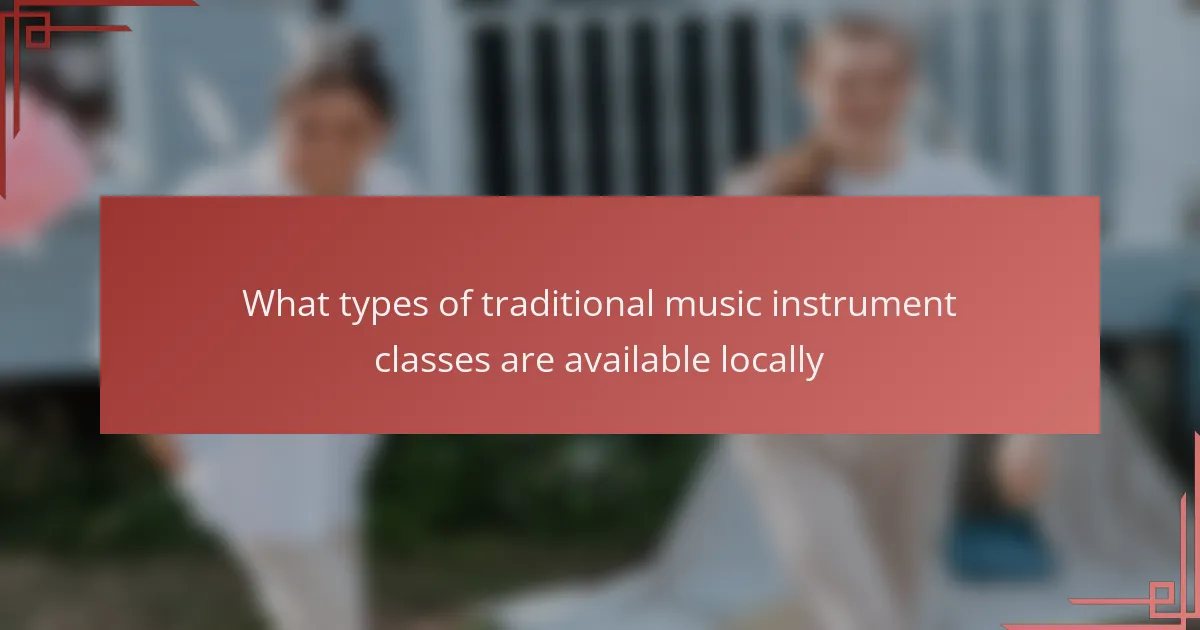
What types of traditional music instrument classes are available locally
Local traditional music instrument classes typically include hands-on workshops and structured lessons for various instruments. These classes cater to different skill levels and age groups, providing opportunities to learn instruments like the guitar and violin in a community setting.
Guitar classes for beginners
Guitar classes for beginners often focus on fundamental skills such as chord progression, strumming techniques, and basic music theory. Many local music schools offer these classes, which usually run for several weeks and include group sessions or one-on-one instruction.
When selecting a class, consider the instructor’s experience and the class size. Smaller groups can provide more personalized attention, which is beneficial for new learners. Look for classes that offer a mix of practice and performance opportunities to enhance your learning experience.
Violin workshops for all ages
Violin workshops for all ages are designed to accommodate everyone from young children to adults. These workshops often emphasize technique, posture, and the joy of playing music together. Many community centers and music schools host these workshops, making them accessible to a wide audience.
Participants should check the schedule for beginner-friendly sessions and ensure that the workshop includes a variety of musical styles. Engaging with peers in a workshop setting can foster a supportive learning environment, making it easier to progress and enjoy the process of learning the violin.
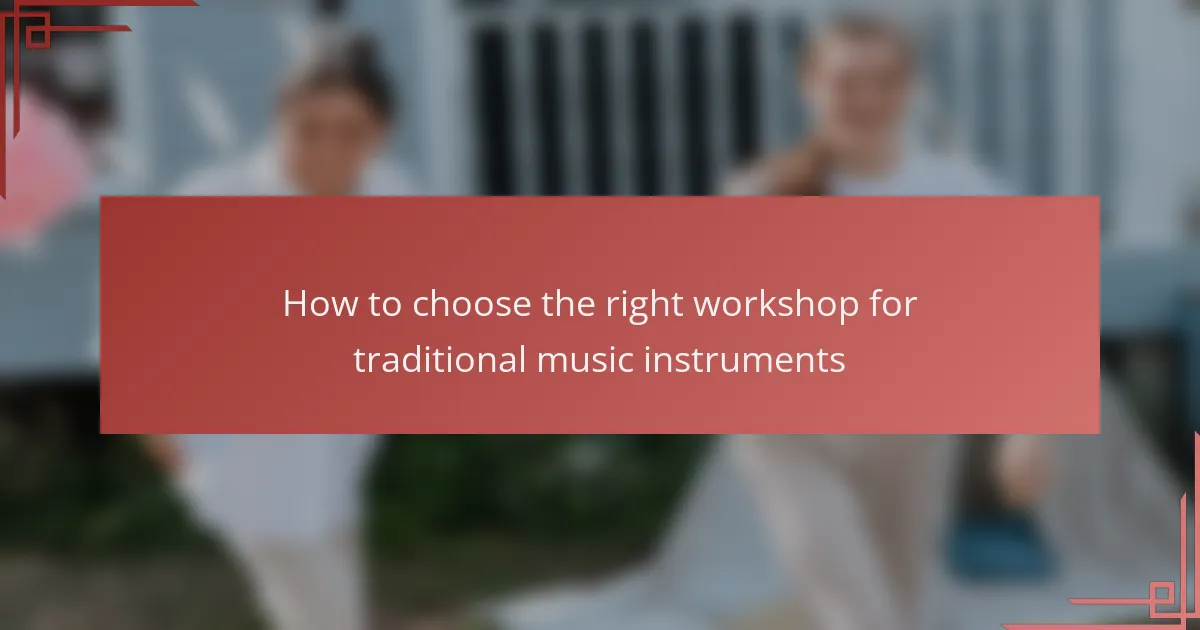
How to choose the right workshop for traditional music instruments
Choosing the right workshop for traditional music instruments involves assessing the instructor’s qualifications, the class size, and the overall structure of the course. Prioritize workshops that align with your learning style and musical goals to ensure a fulfilling experience.
Consider instructor experience
Instructor experience is crucial when selecting a workshop for traditional music instruments. Look for teachers with a strong background in both performance and teaching, as they can provide valuable insights and techniques. Ideally, instructors should have several years of experience in the specific instrument you wish to learn.
Check for credentials, such as formal education in music or notable performances. Personal recommendations and reviews from former students can also help gauge an instructor’s effectiveness and teaching style.
Evaluate class size and structure
The size and structure of a class can significantly impact your learning experience. Smaller classes often allow for more personalized attention and feedback from the instructor, which can enhance skill development. Aim for a class size of around 5 to 10 students for optimal interaction.
Consider the workshop’s structure as well. Some workshops may offer a mix of group lessons and individual practice time, while others might focus solely on group activities. Choose a format that suits your learning preferences and allows you to progress at your own pace.
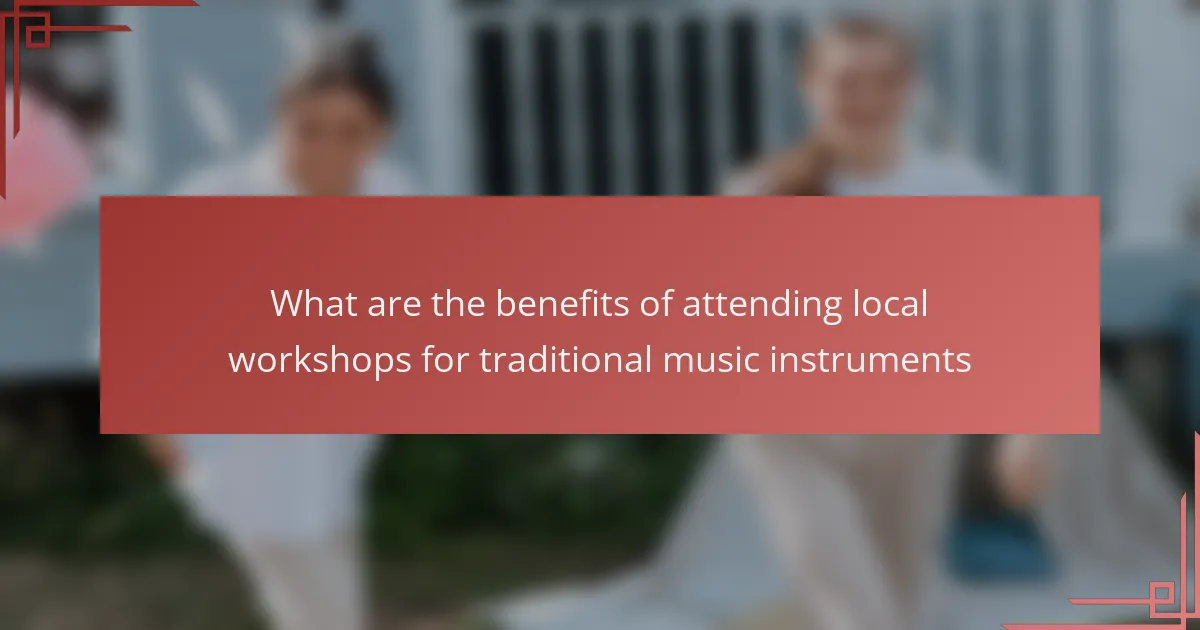
What are the benefits of attending local workshops for traditional music instruments
Attending local workshops for traditional music instruments offers numerous advantages, including practical skills development and community engagement. Participants gain hands-on experience while connecting with fellow enthusiasts and experts in their area.
Hands-on learning experience
Local workshops provide a unique hands-on learning experience that is often more effective than online tutorials. Participants can physically interact with instruments, receive immediate feedback, and practice techniques under the guidance of experienced instructors. This direct engagement helps solidify skills and fosters a deeper understanding of the instrument.
When choosing a workshop, look for those that offer small class sizes to ensure personalized attention. Many workshops also include opportunities to perform, which can boost confidence and enhance learning.
Networking opportunities with local musicians
Workshops serve as excellent networking platforms for aspiring musicians. Participants can meet local artists, join music groups, and discover performance opportunities within their community. Building these connections can lead to collaborations and mentorships that enrich one’s musical journey.
To maximize networking benefits, engage actively with fellow participants and instructors. Attend local music events or jam sessions to further strengthen these relationships and immerse yourself in the local music scene.
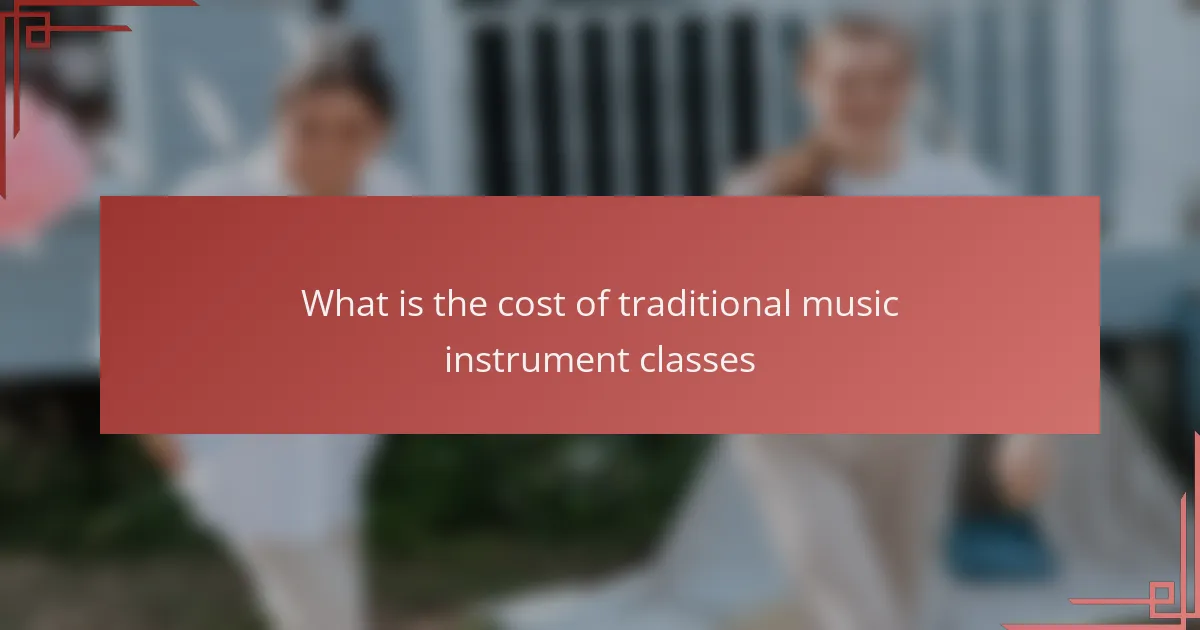
What is the cost of traditional music instrument classes
The cost of traditional music instrument classes varies widely based on location, instructor experience, and class format. Generally, you can expect to pay anywhere from $20 to $100 per hour for individual lessons, while group classes may offer more affordable options.
Average class fees in urban areas
In urban areas, traditional music instrument classes typically range from $30 to $80 per hour for private lessons. Group classes can be more economical, often costing between $15 and $40 per session, depending on the number of participants and the instructor’s credentials.
For example, a city like New York may have higher rates due to demand, while smaller cities might offer lower prices. Always check local listings to find competitive rates.
Discounts for group sessions
Many instructors and music schools provide discounts for group sessions, making them an attractive option for students. Discounts can range from 10% to 30% off the regular price, depending on the size of the group and the total number of sessions booked.
Joining a group class not only reduces costs but also fosters a collaborative learning environment. Look for local workshops or community centers that may offer seasonal promotions or package deals for multiple classes.
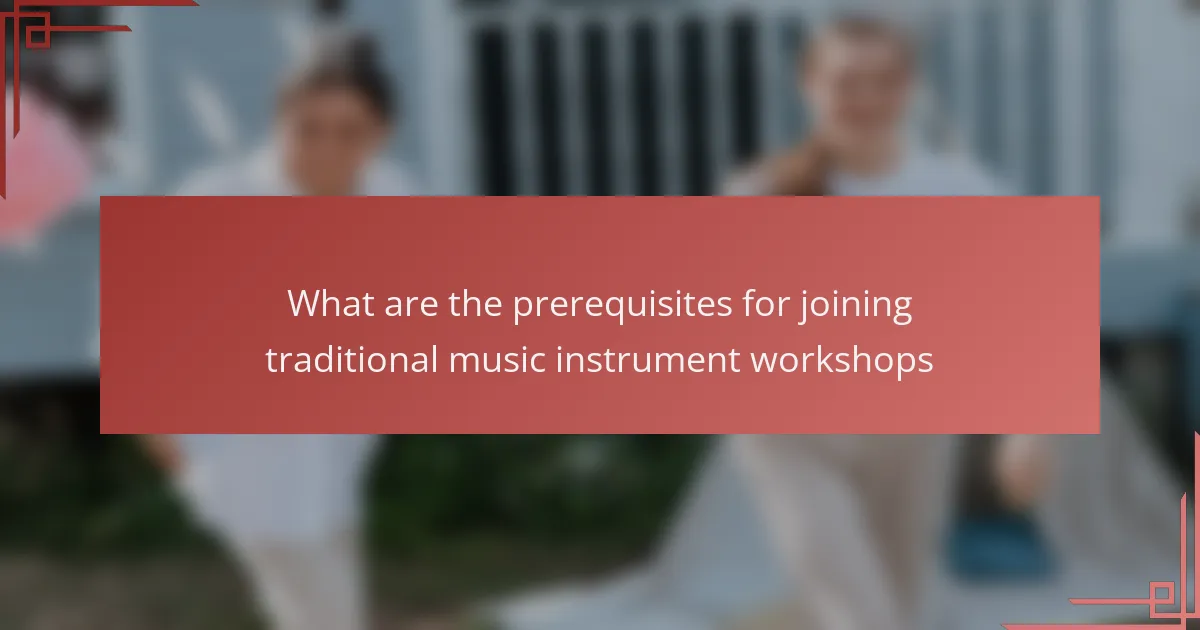
What are the prerequisites for joining traditional music instrument workshops
To join traditional music instrument workshops, participants typically need a basic understanding of music theory and access to an instrument. These prerequisites help ensure that learners can engage effectively and derive maximum benefit from the sessions.
Basic music theory knowledge
Having a foundational grasp of music theory is essential for anyone looking to participate in traditional music instrument workshops. This includes understanding notes, scales, rhythms, and basic musical notation. Familiarity with these concepts allows participants to follow instructions and engage with the material more effectively.
Workshops may vary in their requirements, but a basic level of music theory knowledge is often assumed. For example, knowing how to read simple sheet music or understanding time signatures can significantly enhance your learning experience.
Own or access to an instrument
Access to a traditional music instrument is crucial for hands-on practice during workshops. Participants should either own an instrument or have reliable access to one, as this enables them to practice outside of class and reinforce their skills. Instruments can range from stringed instruments like violins to percussion instruments like drums, depending on the workshop focus.
If purchasing an instrument is not feasible, consider options such as renting or borrowing from friends or local music schools. Many communities also have instrument lending libraries, which can be a cost-effective way to gain access to the necessary tools for learning.
